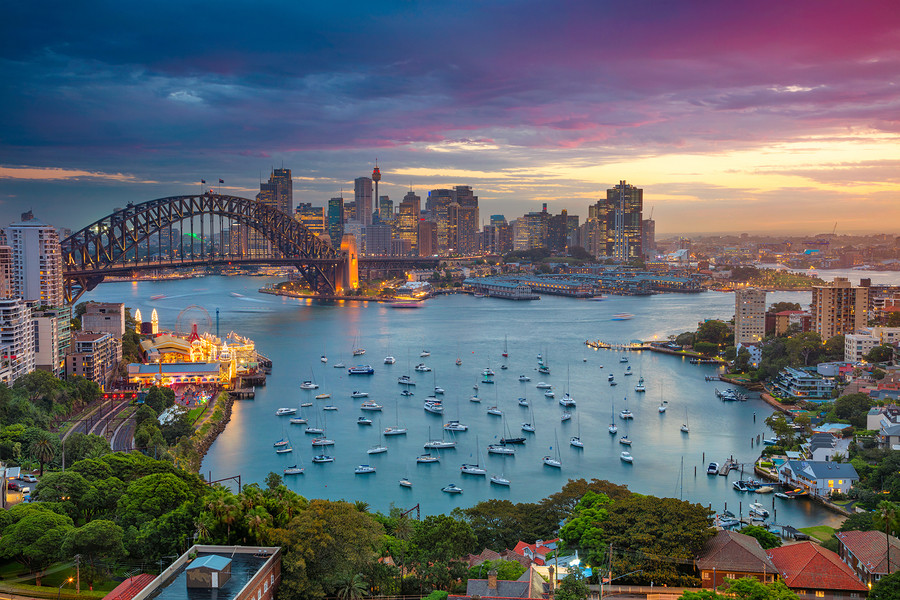Planning a move to the land down under? Well, good for you. Australia offers up lots of opportunity for work, play, and a better life for all that pull up stakes and make the move there. There are certain things you should definitely put in order before you hit the island-continent. Getting your finances sorted out can save you a lot of headaches and unnecessary inconvenience down the road, so check out this short yet handy guide to getting yourself all set.
Set up your bank account before you get there
It might go against expectations, but it’s actually quiet possible to open a bank account with an Australian bank even before you’ve got on the ground and established a physical address. Banks such as National Bank of Australia, ANZ, Commbank and the like all offer up accessible options for you to open a current account that will facilitate your day-to-day transactions.
For the new arrival, a current account will be best if operated on a debit basis, before you establish your creditworthiness and better understand their financial system. By selecting CHQ or SAV for your Chip and Pin transactions as you set up your account, money will only be debited from money already in your account, avoiding any additional charges or interest.
To get money into your account, there are numerous international money transfer services available. It can be quite expensive to do this with your local bank, so it’s advisable to look around for a reputable international money transfer service provider and pick one, or ask your bank to match their prices (most will want to retain your business).
Get a grasp of the tax laws
Should you be heading to Australia on a full working visa, you’ll need to wrap your head around their tax laws and regulations so that you don’t find yourself in violation of any directives. The first thing to do is head to the Australian Tax Office (ATO) and apply for your unique and permanent tax file number (TFN). This is kind of like your Social Security Number (SSN) in the U.S. or your National Insurance (NI) in the UK. It’s yours and yours alone for life.
Once you’ve got this number, you’ll be able to pay your taxes where applicable, sign up for government benefits you might qualify for, and get the required Australian Business Number (ABN) if you’re planning to set up a business. For employees, tax is paid in a pay-as-you-go system, somewhat similar to the UK. Australia is involved in a double-taxation pact with numerous countries, with the UK and numerous Commonwealth countries included, which is designed to prevent your being taxed twice when you’re earning an income overseas.
Make your living arrangements

Renting or buying a place in Australia might quite a different kettle of fish from what you’ve come to expect elsewhere. For one, property purchases are carried out through an auction process rather than private negotiations, so you’ll need to brush up your bidding game.
Renting usually involves open inspections, whereby people looking to rent a place will be conducted on tours of the potential rental. Should you see something you like, then it will be up to you to get your application, offer, references, and deposit to the housing agent as quickly as possible. Fresh arrivals mostly rent a place to stay when they come in, and you can find a list of available properties in whichever neighborhood or region you would like on domain.com.au.
Australian Forex trading
Should you wish to grow your money on the foreign exchange markets in Australia, you shouldn’t have any trouble at all. The industry in the country is a booming one, turning over in excess of $380 million daily.
There are numerous trusted foreign and local-based exchange brokers fully accredited to operate in the country, and the Australian Securities and Investments Commission (ASIC) provides potential trades with this information and much more in their online portals. If you’ve got the nerve and the capital to make the plunge into the markets, then go right ahead, the water’s just fine!
Plan your expenses
This is something many people overlook for some reason. While life in Australia might be comparable to life elsewhere in many respects, the cost of living often comes as a real surprise to many. For one thing, the first thing you should note is that things are a lot more costly in the big cities such as Perth, Sydney, or Melbourne than they will be further away from the metropolises.
Keep the exchange rate of whatever currency you’ll be coming from as you research a bit on rent, groceries, and entertainment prices online. It will come in handy.

